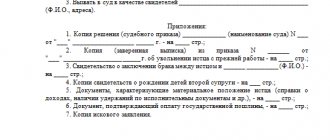Legislative acts.
Russian legislation primarily takes into account the interests of the minor.
When arranging a child’s trip to another country, you should adhere to both the requirements specified in the regulations of the Russian government and those imposed by the country where the trip is planned.
The laws that regulate the procedure for crossing the state border are as follows:
- Law No. 114-FZ of August 15, 1996;
- Decree of the Government of Russia No. 273 of May 12, 2003;
- Order of the Federal Migration Service No. 26 of 02/03/2010.
The first document describes the general rules for removing a minor to another country. The Government Decree describes what to do if one of the parents is against this action.
The laws state that for a minor to travel abroad with one of his legal representatives, the consent of the other is not required.
In this case, crossing the border can occur for the following purposes:
- tourist visit to another country;
- travel for the purpose of undergoing medical procedures or treatment;
- long-term travel for education;
- moving to permanent residence.
Before traveling, you must prepare a minor’s certificate, a foreign passport and apply for a visa (if necessary).
Information about a child under 14 years of age is entered into the mother’s passport. In most cases, a power of attorney from the second parent is not required, as this is contrary to the legislation of the Russian Federation.
The following cases are exceptions:
- the father officially submitted a document banning the child from leaving Russia;
- you are planning to travel to a country for which local authorities require the consent of a second legal representative to enter.
The ban on the child's departure is done in order to prevent abuse by the second parent.
An application for this action can be submitted to such organizations as:
- Migration Service;
- border control authorities;
- Russian consulate in the country where travel is prohibited.
The application is entered into a single database and if an attempt is made to leave Russia, the minor will be left in the country.
In such a situation, border control officers may require either the father’s consent, certified by a notary office, or a court decision to lift the ban.
Permission for a child to travel abroad: a new law if divorced.
Departure of the alimony payer abroad
Article 118 of the Family Code of the Russian Federation provides for the procedure for paying alimony if the ex-husband, obligated to pay alimony, goes abroad for permanent residence.
First of all, a person leaving the country can enter into an agreement on the payment of alimony with his spouse. In a notarized concluded agreement, any form of alimony payment provided for by the UK can be used, including payment of the total amount of alimony immediately both before leaving abroad and by a money transfer of the alimony payer from the country in which the alimony payer will reside.
A peaceful agreement on voluntary payment of alimony is concluded in any case. Regardless of whether Russia has an international agreement on legal assistance in civil, criminal, family matters with the state to which the alimony payer travels or not.
If the parties cannot agree due to disagreements, the interested party may file a claim in court:
- on the collection of alimony from the defendant in a fixed fixed amount;
- on a single one-time payment of alimony based on the child reaching eighteen years of age;
- on the provision of movable or immovable property in payment of alimony;
- or payment of alimony in another way (for example, opening an account in a commercial bank, transferring interest from profits to the alimony account). When making a decision, the court takes into account, first of all, the family and financial situation of both parties at the time of the court hearing, and other important, documented circumstances.
It is important to note that the absence of a court decision on the payment of alimony or an agreement will not become an obstacle to the other party leaving the Russian Federation.
By issuing foreign passports, spouses who evade alimony payments (who have arrears in alimony payments) will be identified by the authorities of the Russian Ministry of Internal Affairs. Travel for such citizens is limited until the debt is repaid in the required amount or until the parties agree.
The procedure for paying alimony when the spouse obligated to pay goes to work or performs military service abroad is applied similarly.
What should a mother do if the father does not agree to the departure of a minor child?
If the second parent does not agree to the minor leaving Russia and has drawn up the appropriate paperwork to this effect, then there are two options.
In the first case, you can peacefully agree and draw up a paper with a notary from both legal representatives that the child can go to another country.
The mother’s action in the event of the disagreement of the father, who is categorically against the trip, is filing a claim in court.
Before going to court, you must follow the pre-trial procedure for resolving a dispute.
To do this, the father of the minor must be sent a notification letter requesting permission to leave. At the same time, the purpose of the trip is indicated and its necessity is justified.
How to apply to the court for permission to take a child abroad.
If the parents of the minor do not come to an amicable agreement, the mother can go to court. The application procedure is quite simple.
A woman is required to fill out a form according to the established template and attach evidence of the need for travel.
The period for consideration of the application is up to 14 days, after which a hearing date is set.
Both parties who will be invited to attend are notified of this. The theory and practical operation of legislation shows that decisions are often made in favor of the mother. But one should not exclude the father’s arguments.
The court decision will primarily depend on respect for the rights and interests of the minor.
Download an application to the court for permission for a child to travel abroad:
Statement of claim for permission for a child to travel abroad.
Application for permission for a child to travel abroad. [29.50 KB]
Applying to court to take a child abroad without the father’s permission.
Women faced with the problem of a ban on traveling with a child outside of Russia are faced with the question of how to go to court.
To do this, you should contact the authority located at your place of residence, fill out an application and pay state fees.
The documents are accompanied by evidence that the trip is a necessary measure.
Another question that faces a woman who wants to take a minor to another country is how to justify the desire to send the child abroad.
It must be taken into account that if a travel ban is issued by one of the parents, the reasons for the trip must be compelling.
If the purpose of travel is treatment, then you should not only take certificates about the disease and extracts from the medical history.
The court may ask why manipulation is impossible on Russian territory. Therefore, it is recommended to provide a decision from a council of doctors regarding the optimal place for treatment in the country where the child is planned to travel.
If a positive decision is made to lift the travel ban, you will need to comply with the court decision.
To do this, the mother will only need to present the paper when registering the trip or at border control.
But the second parent has the right to appeal, including to higher authorities. As practice shows, the decision can be changed.
Disagreement to removal on the part of one of the parents
One of the parents of a minor child, in accordance with Art. 21 of the law regulating entry and exit from the Russian Federation, may declare his disagreement regarding the removal of the child from the country. In this case, the other party can challenge this fact in court. It should be taken into account that the party who expresses disagreement regarding the removal is not obliged to inform the other parent about filing an objection regarding the removal, and she can express her disagreement at any time.
If such a ban exists and until a court decision, if this fact is challenged, customs and border services will not allow the child to be taken out of the country.
What documents need to be prepared for the court.
One of the main problems of a woman who wants to challenge the ban on her child traveling abroad is what documents the plaintiff provides.
If a minor is sent to relatives, you will need to collect papers confirming the relationship.
If the purpose of the trip is training, then its necessity and benefits for the child should be justified. The plaintiff must pay a state fee.
What to pay attention to.
Obtaining consent for the departure of a minor through the court is a rather complicated procedure.
There are no clear legal grounds for judicial authorities to make a decision in favor of the plaintiff. Each case is considered individually.
The outcome of the case is influenced by the evidence presented and its significance. Therefore, any useful information relevant to the case may be attached to the application.
Sample application for permission for a child to travel abroad.
A sample statement of claim for permission for a child to travel abroad must contain the following information:
- the name of the judicial authorities to which the paper is sent;
- personal data and contacts for contacting the plaintiff;
- the purpose of filing an application is to lift the ban on the minor traveling abroad;
- reasons for travel;
- list of attached documents.
Application for lifting the ban on a child traveling abroad. [13.26 KB]
Who has the right to establish a ban and how to do it
According to Decree of the Government of the Russian Federation of May 12, 2003 N 273, a ban on a child traveling abroad as an expression of their own disagreement has the right to express:
- one of the parents;
- guardians;
- trustees;
- guardianship and trusteeship authority.
The applicant is not required to justify the decision , but if there is an appeal against the ban by the dissenting party, the arguments specified in the text of the application will be considered.
The law does not require notification of a child’s travel ban to his parents. To formalize a ban on a child traveling abroad, you should submit an application to the Main Directorate for Migration of the Ministry of Internal Affairs ; if such a decision is made by a foreign citizen, the documents must be submitted to the Russian diplomatic corps in the country of residence.
It is worth understanding that a statement banning the child’s departure cancels permission for it, if it was given earlier. The text of the prohibiting document is drawn up in free form, but must contain the following:
- in the upper right corner of the sheet of paper the name of the body, the applicant’s data, including contact details, are indicated;
- Below in the center is the name “Statement”;
- further, the essence of the ban is described in detail and in relation to whom it is imposed, preferably if the reason is indicated in the text;
- in the lower right corner is the applicant’s signature with a transcript and the date of submission of the application.
- the package of attached documents is described, indicating their quantity and form (copy or original).
To issue a ban or permission for a child to leave, you must submit the following documents:
- a copy of the passport and its original for verification by a service employee;
- a copy of the document on parental rights, certified by a notary (birth certificate, paternity certificate, guardianship order, etc.).
A foreign citizen must have documents translated into Russian and have the translation notarized.
According to Honored Lawyer of the Russian Federation Mikhail Borshchevsky, a ban on the departure of children is usually the revenge of one parent on the other, however, obtaining permission in such cases becomes very difficult and requires a significant time investment. Therefore, before planning a trip, it is worth finding out whether there is a ban on the child’s departure: even if the submission of a prohibiting document is unfounded, the Migration Service is obliged to accept the application and ensure its execution.
You should check the ban on the child’s travel before purchasing tickets and tourist vouchers, since the law does not provide for the payment of compensation if the trip does not take place for this reason.
Traveling abroad with a child for permanent residence.
Often a situation arises when it is planned to leave for permanent residence with the mother in another country.
This will also require the consent of both parents, even if he does not live with the minor and the spouses are divorced.
If the father does not give consent, the woman must file a claim with the court at the defendant’s place of residence.
The question of how to leave Russia for permanent residence is of interest to many. There are various reasons. This could be marriage to a foreign citizen, a desire to give a child a European education, a change of job, etc.
Regardless of who the minor lives with, both parents have the same rights in relation to him.
When a marriage is dissolved, the conditions for the upbringing and place of residence of the child and his communication with both parents are initially negotiated.
Moving to another country for permanent residence makes changes to this way of life, so the consent of all his legal representatives is necessary. If the child's father is against the move, then you will need to go to court.
When is the other parent's consent required?
This situation arises when one of two parents (also regardless of whether they are married or divorced) submitted a written statement to the Russian migration services that prohibits the removal of children abroad without his written consent.
Previously, it was proposed to amend the law to oblige the parent who wrote such a statement to justify his ban. But they were not included in the new edition of Federal Law No. 114. Therefore, the parent is not required to justify why he is against the removal of the child.
See also:
What rights does a mother have to her child during a divorce?
When submitting to the migration departments of the Ministry of Internal Affairs a ban on the export of a minor child outside Russia, the parent indicates his data, the data of the second parent, and his address.
The authorities are considering the application. If it is accepted and approved, then without the consent of the second parent it will no longer be possible to take the child outside the Russian state.
If there is no connection with the second parent, or a negative relationship has developed with him, then when planning a trip abroad, it is worth checking with the Ministry of Internal Affairs authorities on issues of control over the migration of citizens whether he has imposed an official ban on the child crossing the borders of the Russian Federation.
It often happens that divorced fathers are afraid that the mother will take away their joint children and will no longer allow them to see them. Sometimes in this way they vent their negative feelings towards their ex-wife, wanting to create maximum difficulties for her.
Moreover, even if the mother and father later come to an agreed decision, permission for the child to travel abroad will have to be obtained in court.
This can become a significant problem if a minor really needs to leave the country for objective reasons (treatment abroad, sports competitions, education, etc.). Therefore, it is advisable to still try to resolve such problems through contractual means, and for parents to thoroughly consider the situation before writing a disagreement with the removal.
Another aspect of regulating this issue is the requirements of the laws of the countries where children go. The provisions on migration control of the movements of minors are different everywhere. Some states allow that a child can travel with one of the divorced parents without receiving an officially certified document confirming the consent of the former spouse. Then you need to take your children’s evidence with you. Some states will require a translated and notarized consent from the other parent.
Sometimes states take a very close approach to the movement of children, fighting illegal adoption, sale, and exploitation of minors. For example, when crossing the borders of countries such as Spain or Israel, even with both parents, representatives of migration services can call the child and in a conversation make sure that he is traveling with his father and mother. Children should be prepared in advance for the possibility of such a situation.
Registration of travel for permanent residence with a child.
In the case where the mother has established deadlines and time frames for obtaining permanent residence in another country, it is necessary to start processing the documents as early as possible.
The trial could drag on if government officials have questions.
How can you apply for permanent residence without your father’s consent? To do this, you must justify your decision and its significance for the minor. In addition, you will need to prove to the court that the terms of communication and upbringing of the child by the second parent will not be violated.
It should be noted that when resolving a dispute, the judge listens to both sides. A parent who does not agree with the move may have serious reasons for this.
For example, he may not have the opportunity to see a minor due to the high cost of tickets to the country, etc.
In order to avoid problems and have a better chance of success, it is recommended that you contact a qualified lawyer.
He will tell you what documents are required for a child to travel abroad, and how to draw up an application to obtain permission from the second parent.
Legality of taking children abroad
When registering a trip, travel agencies require permission from the second parent for children to travel. In fact, this is not mandatory under Russian law for travel agencies, but is mandatory for border guards in most countries.
To avoid various problems with the subsequent return of money for trips, travel agencies insist on drawing up an agreement for reinsurance.
Main reasons:
- if the removal of children occurred without permission, then the parent who did not give consent can challenge the decision in court;
- For Schengen countries, confirmation of the child’s departure from both parents is required.
If the whereabouts of the father are unknown.
There are situations when the whereabouts of the father are unknown, and the mother needs to apply for a visa to a country where the permission of both legal representatives is required.
In this case, you will need to confirm this fact. To do this, the mother must present one of the following documents when completing the paperwork:
- a certificate from the Ministry of Internal Affairs stating that his whereabouts are unknown;
- a court decision that a citizen is considered missing.
To obtain a paper from the local police department, you must first contact them with an application to search for a citizen. If its location cannot be determined, a corresponding certificate will be issued.










